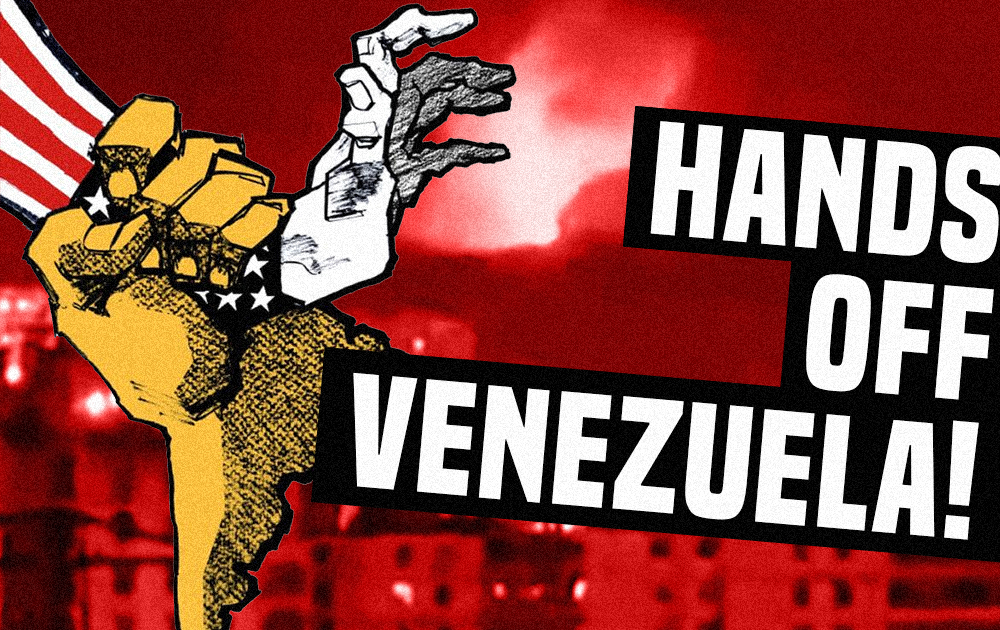The British media has been giving enormous coverage to the manoeuvres of Benazir Bhutto, leader of the Pakistan People’s Party and former Prime Minister, in seeking to negotiate a return to Pakistan from her comfortable exile in London. In this extract from a wider analysis (see Whither Pakistan on Marxist.com ), Lal Khan, leading figure of the Marxist tendency, The Struggle, explains what is going on.
The PPP was formed in the late 1960’s as the result of a revolutionary upheaval of the workers and peasants of this country. Now it has been dragged into the market economy of capitalism where every ideology has a price. An interesting historical incident that should go down in the history books has happened during this crisis: a dictator has met an exiled leader whom he has exiled himself. This incident not only highlights the impotency of this peculiar dictatorship but the hypocrisy and deception of "resistance" and "struggle" of the political leaders.
However, this is not the first time that Benazir Bhutto has struck a deal with a military dictator. In 1984 she left Pakistan through a deal with General Zia ul Haq that was negotiated by her friend and important associate of the US administration, Peter Galbraith. Similarly, her return in 1986 and subsequent assumption of power in 1988 were brokered through "deals" with the Military establishment conducted under the auspices of US imperialism. With every deal she has dragged the PPP away from its founding socialist principles and tried to present herself as a statesperson more capable of diverting the mass movements and protecting the interest of imperialism than others.
However, with the present "deal" there is too much at stake for both Benazir and Musharraf. Benazir is aware of the resentment she is provoking amongst her supporters with such actions. Musharraf on the other hand faces the dilemma of how to dismantle the political structures he has built comprising feudal, capitalist and other right-wing politicians. The only god these people worship is power. In the event of losing state power their whole edifice for plundering and self-enrichment would collapse. So although their electoral base is mainly state-sponsored, they are still trying to dissuade Musharraf from striking this deal with Benazir.
Pressure
Hence the deal is facing multiple obstacles. But the Americans are putting enormous pressure on both sides to go ahead with the deal. Fighting "extremism and promoting moderation" are the buzzwords that Benazir repeatedly uses as the rationale for having a secret dialogue with Musharraf. This stance is clearly geared towards winning the support of the White House.
In an interview with the Washington Post on August 26, she said, "The international community and the armed forces have confidence in Musharraf."
"International community" is Ms. Bhutto’s euphemism for the US administration. It means mainly the White House, whose financial, military and public support for Musharraf is viewed with a mix of awe and jealousy by Benazir.
Message
Her assessment, which is also probably quite accurate, is that the White House is unlikely to ditch Musharraf. Thus, Ms. Bhutto’s message to the American audience is that by supporting Benazir along with Musharrraf, Washington can have the best of both worlds, and stem the tide of "extremism" in Pakistan and in the region. At the same time she makes a display of a democratic farce.
When it comes to acknowledging the role of the US in influencing power politics in Pakistan, Ms Bhutto in an interview with a US TV channel, PBS aired on August 21, had no qualms in saying that, "We keep them [Americans] briefed, and they are certainly engaged with all the political parties in Pakistan." In the Washington Post interview she came out openly, "We want stability in Pakistan, fair elections and General Musharraf is our ally." She claims to have fought extremists more effectively than Musharraf, and if she gets back in power in the near future she wants Musharraf to be on her side because she doesn’t want the security forces to disagree with her in an attack on internal militancy.
At the same time she is worried about the decline in her mass support due to this rotten compromise she is trying to broker with the Military dictatorship. In an interview with "The Observer" (London) on Sunday, September 9, 2007 Benazir Bhutto said her campaign would be inspired by the old slogan of the Pakistan People’s Party (PPP) "Food, Clothing and Shelter". She added that, "We represent the underprivileged, the peasants, women, young people, the minorities, all those who have been neglected by elite governments."
The word "proletariat" is, however, conspicuously absent from the sections of society she claims to represent. Similarly, she has never condoned the founding principles of the party. The founding document of the PPP clearly states, "The ultimate policy of the party is the attainment of a classless society which is only possible through Socialism in our times." Benazir would shudder at such a prospect.
Incidentally, just a week before this interview she declared "full support" for NATO in Afghanistan and that "Pakistan would remain a firm ally of the USA" under her next expected term in office.

Such contradictory policy statements show her desperation when her support amongst the masses is rapidly dwindling and there is a seething resentment amongst the PPP rank and file due to her desired deal with the Musharraf dictatorship.
The situation within the PPP is at a low ebb. The little internal political life left has shrunk. Most activists and leaders have been indoctrinated and programmed with the perception of attaining personal gain, financial benefits and other perks and privileges by the Party coming to power and it matters little at what cost and with what shameful compromise. Hence there is not much activity in the ranks of the party at the present time. But with Nawaz Sharif deported by force of the state, a smooth homecoming of Benazir, facilitated by the same state apparatus, would not build up any political fortune for the Party. Benazir would be further discredited in such a scenario. Therefore she will probably further delay her return.
It is true that PPP has been the traditional party of the toiling masses of Pakistan since the 1968-69 revolution. But sometimes the tradition of the workers in the words of Marx, "weighs like an Alp" on the consciousness of the proletariat. This tradition has somewhat decayed and rotted but due to the lack of a revolutionary force on the country’s political horizon the masses still have no alternative. And although Benazir’s compromises and conciliations with capitalism and its military state establishment have created political retrogression and some confusion, the PPP remains the only mass expression of the Pakistani workers and peasants.
That is why once the PPP comes to power it would find it extremely difficult to carry through the agenda which the Americans want Benazir to execute. It is not that the Americans want a Musharraf-Benazir deal to curb "Islamist extremism" or to install a "democratic regime". What they are in actual fact terrified of is a workers’ movement developing against this disastrous capitalist policy being aggressively carried out in Pakistan. They have seen the potential for such a movement in the Telecommunication workers’ strike of 2005 and the steelworkers’ struggle in 2006.
That is why this intended imperialist pre-emptive strike through the Benazir/Musharraf deal would not work. It could actually achieve the opposite and provoke an outburst of anger and revulsion that has been accumulating for several years now. After the Sharif fiasco in Islamabad on September 10, Benazir will be more worried about her "deal". To be seen returning to
Pakistan, with military consent, when Sharif has just been expelled would do little for her reputation and would weaken her ability to influence the masses. With the passage of time and frustration at her failure to reach a deal with Musharraf, she can become more agitated and resort more towards an antagonistic stance and take on an anti-regime posture against Musharraf. And although it might have the effect of pleasing the masses who may also adopt a mood of temporary deceptive relief, such a move would become more complicated and hazardous in the face of the pressures of US imperialism.
In such difficult circumstances the tasks of Marxists are clear. It is vital the revolutionaries stand shoulder to shoulder with the workers and the toiling masses in the most difficult and nauseating conditions into which they are being forced by the ebbs of historical evolution. The role of the PPP leadership is no different from that of the Social Democratic leaders of Europe and elsewhere. They are called on to use their authority to moderate the struggles of the oppressed, to hold back their revolutionary aspirations. It is only by standing with the masses in such painful conditions, that the Marxists can lead them when the tide turns and the proletariat moves in a revolutionary direction.
Vanguard
Lenin was very clear in this relationship between the revolutionary vanguard and the working class. In "Left wing Communism", Lenin writes:
"If you want to help ‘the masses’ and to win the sympathy and support of ‘the masses’, you must not fear difficulties, you must not fear the pinpricks, chicanery, insults and persecution on the part of the ‘leaders’ (who being opportunists and social chauvinists, are in most cases directly or indirectly connected with the bourgeoisie and the police), but must imperatively work wherever the masses are to be found. You must be capable of every sacrifice, of overcoming the greatest obstacles in order to carry on agitation and propaganda systematically, perseveringly, persistently and patiently, precisely in those institutions, societies and associations – even the most ultra-reactionary – in which proletarian or semi proletarian masses are to be found." (Left wing Communism, an Infantile Disorder, Lenin, pp. 61)
A mass revolutionary upheaval in the next period in Pakistan will outshine even the 1968-69 revolution, which created and gave stature to the tradition of the PPP. Such movements are iconoclastic in character, they create new revolutionary traditions that change societies, reshape destiny and transform history. A revolutionary tendency can play a decisive role in such events.
Even with the relatively small forces of revolutionary Marxism in Pakistan, a subjective factor can give organization and direction to such a movement. Such a revolutionary upheaval can overthrow capitalism, destroy the roots of religious fundamentalism and obscurantism, smash the shackles of feudalism and remove the yoke of imperialist stranglehold and exploitation. Such a feat can only be accomplished through a Socialist Revolution. A socialist victory in Pakistan would open the floodgates of revolutionary upheavals across the South Asian subcontinent from Afghanistan to Burma where the masses are seething with revolt and yearning for a socialist transformation.






